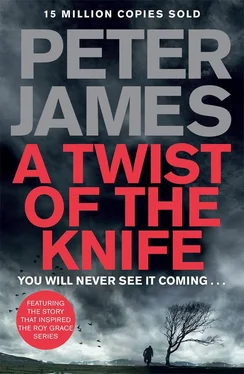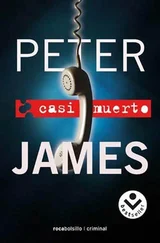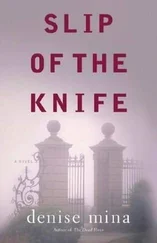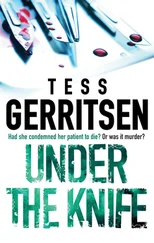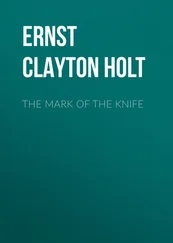‘So, OK, how would I do that?’
‘You’d be taking a big risk. If you got caught you could end up forfeiting the lot.’
She shrugged. ‘If we do nothing, we are going to lose much of what we have, Mr Denempont.’ Then her eyes narrowed. ‘Marcus Leigh-Hoye told my husband that you are a man he trusts completely. And that you are a man who is prepared to — how you say in your country — bend the rules? That is good enough for us. We need to bend the rules. How are we to do this?’
‘You really want to know?’
‘Yes.’ She was emphatic.
Their Champagne arrived.
‘OK, I’ll tell you what I would do if these were my pictures and I wanted to get them out of Italy.’
She raised her glass and sipped. ‘Yes?’
‘Your biggest problem is the countries signed up to the Unidroit Convention on Stolen or Illegally Exported Cultural Objects.’
‘Which are?’
‘Every European nation.’
She looked unfazed. ‘So what would you propose?’
‘I’d take all the canvases off their stretchers, put them in the bottom of a suitcase and set off on what looks like an innocent motoring trip across Europe. The key to this being a success would be the timing of your arrival at the borders. I would suggest crossing frontiers in the middle of the night, when customs officers are tired and not so alert — at 4 a.m. no one is at their best. Get to London, where they are the least diligent about exported arts — there are no export customs at London’s Heathrow Airport, for example — then fly to New York from there.’
‘With the paintings at the bottom of my suitcase?’
‘Precisely. Their weight will be insignificant. But you are taking a massive risk.’
‘In our situation, is that a risk you would take, Mr Denempont?’
He hesitated. ‘If I had no other option then yes, I think I would. But you must understand, Contessa, I cannot advise you to do this. I’m simply telling you what I would consider doing. The risk you face in any European country is serious. Confiscation of the entire collection. You could lose millions.’
‘As I pointed out, we are going to lose millions if we do nothing,’ she said.
‘It has to be your decision.’
‘So, OK, let us suppose we succeed in arriving in New York with the pictures. Will we have a problem with potential buyers because we do not have an export licence from Italy?’
‘Not with the collectors I know there,’ he said. ‘No problem at all.’
He began once again to compute his potential commission. It would be a big sum. A very big one indeed!
She smiled and raised her glass. ‘I think, possibly, we may have a plan — no?’
He raised a defensive hand. ‘ Your plan, Contessa. I know nothing about it!’
She raised her glass again and drained it. ‘You know — nothing! Nada! ’ She grinned, then stood up. As she reached the door she turned and said, ‘I look forward to seeing you in New York. One of my favourite cities.’
‘I’ll be more than happy to carry your suitcases, Contessa.’
‘I might hold you to that. Marcus was right, I think, when he said you were our man. I appreciate your honesty. Arrivederci! ’
In a swirl of classy perfume, she was gone.
Reality was a drizzly, late November Thursday, a few minutes before midnight. While their diminutive, elderly retainer, Vincenzo, hefted the Contessa’s bags into her Alfa, she stood beside her husband, nervously squeezing his hand, her stomach feeling like jelly. In the gloomy darkness, beneath the crumbling portico, with the solitary overhead lamp shining down on the wet paintwork of the car, she felt anything but confident. She had streaks of dirt on her face and her gloveless hands were grimy — all part of her cover story.
Vittorio, Conte Di Valieria Massino, a tall, elegant man, dressed in a pale blue cashmere sweater over a cream shirt, paisley cravat and crisply pressed slacks, squeezed her hand back, trying to give her reassurance, but in reality feeling very nervous, too. It should be he who was making the journey, but the London dealer, James Denempont, was experienced in helping people smuggle works of art out of Italy and was adamant that a woman travelling alone would be less likely to attract the attention of customs officers than a man.
They were taking a terrible risk. A long prison sentence for Romy and the confiscation of their works of art, which would leave them in financial ruin. The alternative was equally unthinkable, though.
This magnificent palazzo, up here in the hills close to Florence, had originally been built in 1588 as a summer home for Catherine de Medici, although she had died without ever seeing it finished. It had been in Vittorio’s family for over four centuries now. He’d grown up here, and it was where, in turn, he and his wife had raised their four children. He was now its custodian. Aristocrats like himself never really viewed themselves as owning their grand houses. He regarded himself merely as a curator, trying to preserve the palazzo and hand it on to the next generation in slightly better condition than when he had inherited it.
Now he risked losing it through a convergence of unlucky factors. The first was being swindled by his trusted accountant, who had convinced him to invest vital cash, which he had been keeping in reserve for maintenance works, into a printing business. It turned out to be a scam, set up by his lawyer who had absconded to Brazil. The second was the arrival of a crippling tax bill, thanks to the same accountant, who had been siphoning off the tax Vittorio thought he’d been paying for the past decade into a Panama bank account. The third, just two months ago, was the grim news from a structural engineer that the house was riddled with dry rot, to the point where parts of the upstairs were too dangerous to inhabit and had to be sealed off. The estimate for repairs was hundreds of millions of lire.
Other than the property itself, their assets were the art treasures housed in the palazzo’s grand rooms — some of which he had inherited and some which he and Romy had collected during better financial times. These Impressionist pictures, now taken off their stretchers and lying at the bottom of a suitcase in the Alfa, were the latter, so at least in disposing of them it did not feel like he was selling off the family silver. He watched Vincenzo close the boot.
They were all set.
They’d discussed for an age what car she should drive on this trip. Her convertible sports Mercedes, which she loved, might attract too much attention, they decided. As would his Jaguar. So they had bought, second-hand, an Alfa Giulietta 1600 Ti saloon. Sporty but relatively inconspicuous. And it had the advantage of a large boot.
She slipped behind the wheel. He kissed her on the cheek, wished her good luck, then slammed the door. She fired up the engine and drove off fast, as she always drove, along the driveway lined with cypress trees. After a moment he saw her brake lights come on and wondered if she had forgotten something or was having a change of heart. Then he saw a faint glow inside the car and realized she had lit a cigarette.
He went inside and had Vincenzo pour him a very large single malt. A short while later he poured himself a second one, eyeing the time. At this time of night, with the traffic light, it would be an easy two hours to the nearest crossing point, near Locarno, into Switzerland. Romy planned to stop before then and get an espresso, to kill a little more time. With luck, she would be through the border controls by a quarter past three. Then she had about a twenty-minute drive to a hotel, where she would spend the rest of the night and much of tomorrow. She had already phoned them to explain she would be hours late, giving them the same story she would give to any border official if she was challenged about why she was driving alone at this hour of the morning. Her brother-in-law had recently died; she was going to take her sister away on a short motoring holiday to Scotland.
Читать дальше
